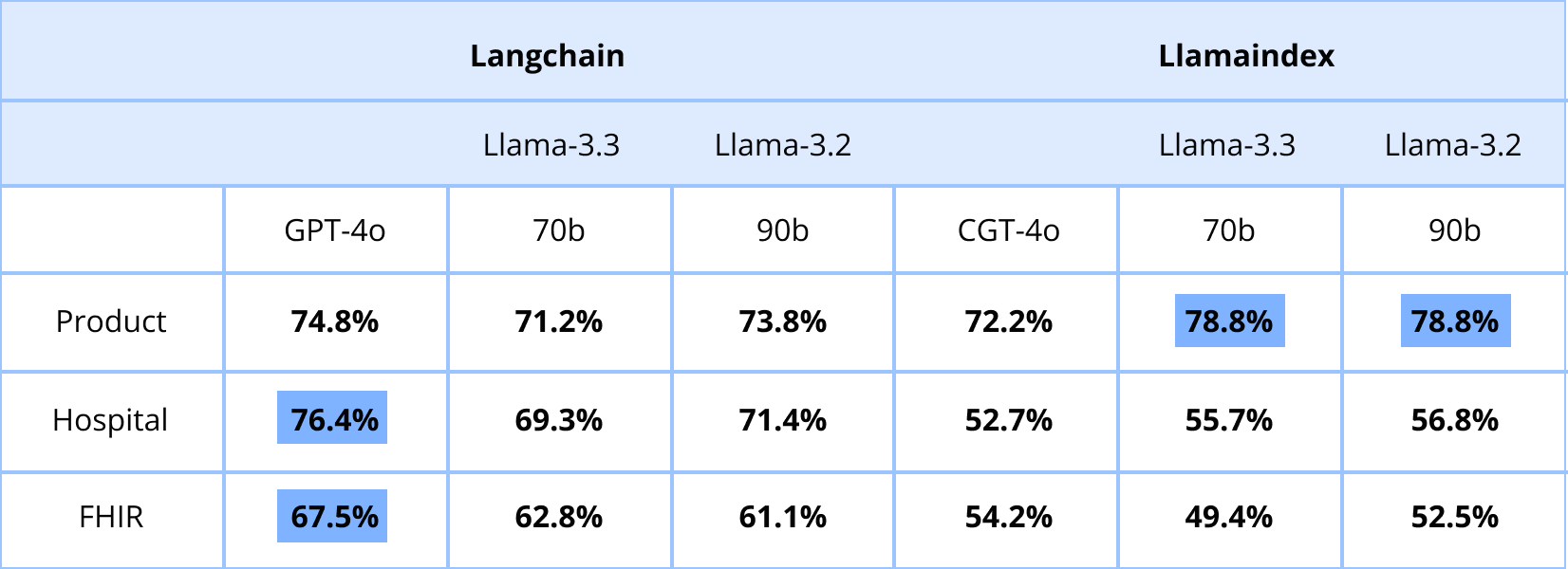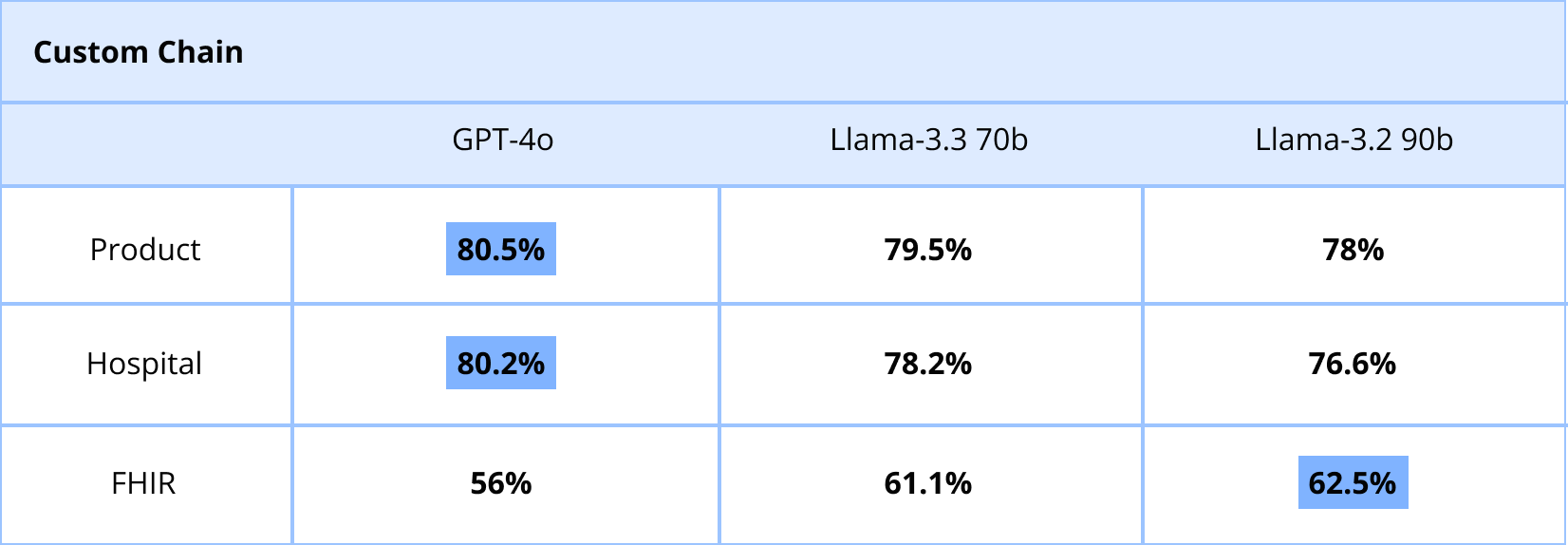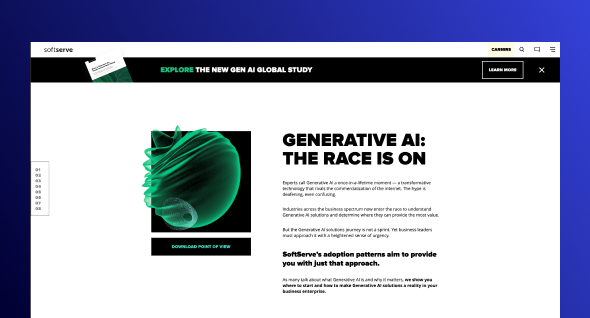In Brief
Businesses need more accessible data solutions. Employees should feel supported and confident using AI in data and analytics, not overwhelmed or intimidated by it.
Talk2DB uses AI to translate natural language into database queries, so non-technical users can make data-driven decisions without relying on SQL.
Flexible implementation options, such as low-code, custom chain-based, and agent-based solutions, are available to fit different business needs. Experimental results highlight the trade-offs between them.
Data is essential for modern businesses, but nearly half (46%) don't use it to gain insights or make decisions. The gap between having data and actually using it continues to grow. Generative AI (Gen AI) technologies close the gap between data and action, offering a simple and user-friendly way to access and use data beyond traditional database queries.
Speak to Your Data: No Sql, No Problem
Talk2DB is a building block in the next generation of intelligent data infrastructure and helps businesses build sophisticated meta-solutions. There are tools on the market that translate human language into SQL queries, but they require database access and some knowledge to work effectively. Even then, the results are raw data, not fully interpreted insights.
It has three unique features:
Uses advanced large language models (LLMs) for agent-based or chain-based solutions. Easily connects to visualization tools and retrieval-augmented generation (RAG).
Combines a modular design with visualization tools, RAG systems, and domain-specific applications, to create customized solutions for your workflow. It also adheres to security and compliance standards.
A core component to developing broader intelligent systems that improve the way teams work and derive value from their data.
Talk2DB is a foundational component of modern data infrastructure and addresses pressing challenges. A survey of 1,300 business and IT leaders in seven leading economies reveals an interesting — but concerning — trend. While more than 92% are "willing” to learn new data skills, only 57% feel "extremely” or "very” enthusiastic about working with data. Surprisingly, half feel they are "too old" to learn these skills.

Save Time, Reduce Costs, and Make Smarter Decisions
Talk2DB bridges the gap between technical and non-technical users, empowering more people to make data-driven decisions.
For example, instead of writing: SELECT * FROM customers WHERE city = “Austin”
You could simply say: “Show me all customers in Austin.”
Benefits:
Save time: Save hours of work and get insights in minutes, even if you don’t know SQL or have technical support.
Cut costs: Spend less on hiring specialized data analysts and skip expensive training for database tools.
Instant insights: Make data-driven decisions with instant access to the data you need.
Focus resources: Free up your technical teams to focus on complex analytics and system improvements.
Mitigate risk: Access secure, accurate data, no matter your role in the organization.
3 Ways to Bring Talk2DB Into Your Business
There are three ways to implement Talk2DB, each with distinct characteristics for different use cases. We break it down so you can choose the right approach.

1. Low-code solution
Provides a faster go-to-market, ideal for simple databases
Advantages
- Rapid implementation with established frameworks such as LangChain and LlamaIndex, or pre-built solutions such as PowerBI Gen AI and MS Co-Pilot
- Strong community support and documentation
- Ready-made components cut development overhead
Limitations
- Few customization options
- Works only with framework-supported LLMs
- Fixed workflows patterns

2. Custom chain-based
Offers a clear, linear workflow with centralized control, ideal for predictable and robust error handling
Advantages
- Complete control over implementation
- Flexible options for LLM integration
- Highly configurable for specific use cases
Limitations
- Longer development timeline
- Requires significant technical expertise
- Higher initial resource investment

3. Agent-based
Provides flexibility and scalability through decentralized, dynamic interactions, ideal for complex and evolving queries
Advantages
- Autonomous operations capabilities
- Dynamic task handling
- Simplified configuration process
Limitations
- Platform-specific restrictions, such as Azure-only deployment
- Less direct control over processing flow
- Requires careful resource management
How Talk2DB Stacks Up: Real-world Results
Evaluation
We developed an advanced method to evaluate how database query systems perform. It’s based on five key metrics, and the final score is just the average of those.
Row equality: Checks if the data (rows) in the result matches what we expected. Score: 0-1
Column equality: Ensures the structure (columns) of the result is correct. Score: 0-1
Query similarity: Compares the generated SQL query with the expected one, taking into account small differences. Score: 0-5
First value equality: Checks if the first value in the result is correct. Score: 0-1
Code generation success: Confirms that the result isn’t empty. Score: 0-2
Results
Three experiments reveal the strengths and weaknesses of open-source and closed models across different datasets. We compared GPT-4o, one of the most advanced models, to popular open-source models such as Llama 3.3 70b and Llama 3.2 90b. The datasets ranged from simple product catalogs with basic relationships to complex healthcare FHIR databases, containing detailed patient information and extensive relational structures.
Experiment 1: Pre-defined chains

Findings: Closed models outperform open-source models in structured tasks, achieving higher accuracy. However, even GPT-4o shows limitations in managing complex structures, as seen in the drop in FHIR performance.
Experiment 2: Custom chains

Findings: The custom chain's flexibility makes it effective with hospital and FHIR datasets. This adaptability extends to open-source models, which can be tailored for customized setups.
Experiment 3: Complex datasets

Findings: Single-agent systems performed better than multi-agent systems on complex datasets due to their efficient and simple task processing. Although both systems performed similarly on easier tasks, single-agent systems were more accurate and easier to implement overall.
The Future of Data-driven Decision-making
Why SoftServe
SoftServe creates tailored solutions and implementation strategies to fit your business needs, ensuring a smooth path to Gen AI success. With tools like Talk2DB, we offer adaptable integrations that cater to even the most complex requirements.


